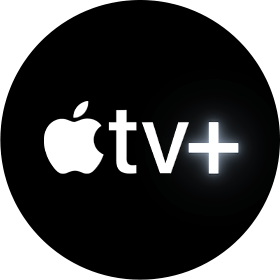The UK confirms its intent to bolster legislation of Apple TV+, Netflix, & other streaming services

iMore offers spot-on advice and guidance from our team of experts, with decades of Apple device experience to lean on. Learn more with iMore!
You are now subscribed
Your newsletter sign-up was successful
What you need to know
- The UK is making moves to give regulators more control over streaming companies like Netflix and Apple TV+.
- A new code will require that streamers adhere to standards surrounding privacy, complaint procedures, and more.
The UK has further outlined its intent to increase its regulation of video-on-demand (VOD) services to ensure that they adhere to the same rules as traditional television channels and providers.
In a newly-published whitepaper, the UK outlined plans to bring the likes of Netflix and Apple TV+ under a new Video-on-demand Code, essentially ensuring that they will have to meet the same standards as traditional television companies. Those companies already follow Ofcom's Broadcasting Code with the whitepaper suggesting both codes are "similar" to one another.
Video-on-demand services such as Netflix and Amazon Prime Video provide huge value to UK audiences, and in many cases significant, and growing, contributions to the UK economy. Viewers now have access to thousands of hours of on-demand programmes at the touch of a button across hundreds of different video-on-demand services, each of different scale and ambition and audience reach.However, these on-demand services, other than BBC's iPlayer, are not subject to Ofcom's Broadcasting Code, which sets out appropriate standards for content including harmful or offensive material, accuracy, fairness and privacy. This means that the TV-like content you watch is regulated differently depending on how you choose to watch it.
The report goes on to point to a previous consultation regarding Ofcom control of streaming companies — that consultation has now progressed with the UK now keen to move things on to the next step — legislation.
A full response to that consultation has been published alongside this White Paper, which outlines that the government intends to legislate in a light touch manner to give Ofcom powers to draft and enforce a new Video-on-demand Code, similar to the Broadcasting Code, to ensure TV-like content, no matter how audiences choose to watch it, will be subject to similar standards. These changes will mean UK audiences will be better protected from harmful material and better able to complain to Ofcom if they see something they are concerned about.
Timescales for when this will all happen aren't yet clear, but the whitepaper believes that the move "will mean that larger on-demand streaming services will have the same or similar obligations as traditional broadcasters, including effective handling of complaints."
Most of the larger US-based streaming providers already have a presence in the UK, with Apple TV+ providing some of the best value at just £4.99 per month. HBO Max isn't currently available, although there are plans for its expansion already in place. Content that would normally stream via HBO Max is currently only available to UK customers via a deal HBO has with satellite provider Sky — something that will change once HBO Max makes the hop across the Atlantic
iMore offers spot-on advice and guidance from our team of experts, with decades of Apple device experience to lean on. Learn more with iMore!

Oliver Haslam has written about Apple and the wider technology business for more than a decade with bylines on How-To Geek, PC Mag, iDownloadBlog, and many more. He has also been published in print for Macworld, including cover stories. At iMore, Oliver is involved in daily news coverage and, not being short of opinions, has been known to 'explain' those thoughts in more detail, too.
Having grown up using PCs and spending far too much money on graphics card and flashy RAM, Oliver switched to the Mac with a G5 iMac and hasn't looked back. Since then he's seen the growth of the smartphone world, backed by iPhone, and new product categories come and go. Current expertise includes iOS, macOS, streaming services, and pretty much anything that has a battery or plugs into a wall. Oliver also covers mobile gaming for iMore, with Apple Arcade a particular focus. He's been gaming since the Atari 2600 days and still struggles to comprehend the fact he can play console quality titles on his pocket computer.

